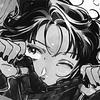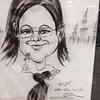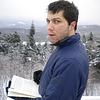Take a photo of a barcode or cover
adventurous
dark
emotional
funny
hopeful
inspiring
lighthearted
mysterious
reflective
relaxing
sad
tense
slow-paced
This book has to be read with the eyes of a kid. As an adult I found it extremely predictable, but I can imagine how amazed I would've been reading it as a little girl, imagining all the fantastic places in my mind. It's also a great example of the hero's journey archetype, but with a non-traditional hero.
adventurous
lighthearted
mysterious
reflective
medium-paced
adventurous
mysterious
reflective
medium-paced
Plot or Character Driven:
Plot
Strong character development:
Complicated
Loveable characters:
Complicated
Diverse cast of characters:
Yes
Flaws of characters a main focus:
Complicated
adventurous
hopeful
medium-paced
Plot or Character Driven:
A mix
Strong character development:
Yes
Loveable characters:
Yes
Diverse cast of characters:
Yes
Flaws of characters a main focus:
Complicated
adventurous
emotional
inspiring
I am honestly shocked that this book has eluded my periphery for this long, especially since a friend of mine has recommended the movie adaptation to me multiple times and this is the exact kind of book I would have devoured as a kid. I'm honestly kind of sad that kid me missed out on this gem, because I often longed to have this exact kind of story in my life.
our protagonist is Bastian Balthazar Bux, a preteen boy who is a timid and shy little violet. he is often bullied at school for being fat, awkward, and getting lost in his own little worlds. one fateful morning, he seeks refuge from his bullies in a bookstore, where he comes across a magnetizing book with a strange ouroboric symbol on its front cover. desperate and intrigued, Bastian steals the book, decides that he’s running away for good, and hides away in the attic of his school, playing hooky to read his newfound treasure. this book is the titular Neverending Story.
without spoiling too much of the story, I’ll tell you that this book is split into two halves, a “before” and “after”. Bastian remains the main character in both halves of the story, but we often get POV changes as events occur and characters exit the story to live their own lives and make stories of their own. there is a tonal shift from one half to the next that surprised me in a good way, especially since the climax of the first half felt narratively satisfying. I wondered how there was still half a book left, and I think a lesser fantasy novel would have ended it after that first half of the story was told. but The Neverending Story wants to push the boundaries of storytelling within the confines of its own pages, and as I read the back half of the book I understood exactly why it was necessary to tell.
this is a story about stories, about imagination, about duality; just as there are two halves of the book, there are dichotomies everywhere. good vs bad, light vs dark, beauty vs ugliness; there is a very clear reason why the symbol of The Neverending Story is two snakes, one black and one white, eating each others tails in a perpetual loop. one can't exist without the other, and things can be spontaneously created and, simultaneously, eternally true. the ruler of the land of Fantastica holds both sides in equal importance: there are good things and bad things and she doesn’t care to distinguish between the two. Bastian gets trapped in the story, first by escapism and then by choice, and must find his way out again. this is a book with metacommentary on books.
it's a very charming novel with a really clever premise. I've often pondered how to write a story that could forever exist as long as a reader kept reading, and this scratches that narrative and structural itch for me. again, I would have been completely obsessed with this novel as a kid. it reminded me a lot of other books I read when I was young, namely Dragon Rider by Cornelia Funke.
now, it isn't perfect. it features some shockingly casual racism and sexism. I think the pacing can be a little slow at times too; I often felt annoyed or bored by the story’s structure because I wanted to keep it moving. but I can understand and appreciate that this book is a bunch of stories stacked on top of each other by design, because whose story is ever really finished? you never settle into one place in Fantastica for very long, always traveling to the next adventure…
I also recently watched the film adaptation and didn't like it at all. I much prefer the tale that's within the pages of Micheal Ende's The Neverending Story. if I ever feel the urge to return to Fantastica I know exactly which version I'll seek out, and it's not the one that graced the silver screen.
our protagonist is Bastian Balthazar Bux, a preteen boy who is a timid and shy little violet. he is often bullied at school for being fat, awkward, and getting lost in his own little worlds. one fateful morning, he seeks refuge from his bullies in a bookstore, where he comes across a magnetizing book with a strange ouroboric symbol on its front cover. desperate and intrigued, Bastian steals the book, decides that he’s running away for good, and hides away in the attic of his school, playing hooky to read his newfound treasure. this book is the titular Neverending Story.
without spoiling too much of the story, I’ll tell you that this book is split into two halves, a “before” and “after”. Bastian remains the main character in both halves of the story, but we often get POV changes as events occur and characters exit the story to live their own lives and make stories of their own. there is a tonal shift from one half to the next that surprised me in a good way, especially since the climax of the first half felt narratively satisfying. I wondered how there was still half a book left, and I think a lesser fantasy novel would have ended it after that first half of the story was told. but The Neverending Story wants to push the boundaries of storytelling within the confines of its own pages, and as I read the back half of the book I understood exactly why it was necessary to tell.
this is a story about stories, about imagination, about duality; just as there are two halves of the book, there are dichotomies everywhere. good vs bad, light vs dark, beauty vs ugliness; there is a very clear reason why the symbol of The Neverending Story is two snakes, one black and one white, eating each others tails in a perpetual loop. one can't exist without the other, and things can be spontaneously created and, simultaneously, eternally true. the ruler of the land of Fantastica holds both sides in equal importance: there are good things and bad things and she doesn’t care to distinguish between the two. Bastian gets trapped in the story, first by escapism and then by choice, and must find his way out again. this is a book with metacommentary on books.
it's a very charming novel with a really clever premise. I've often pondered how to write a story that could forever exist as long as a reader kept reading, and this scratches that narrative and structural itch for me. again, I would have been completely obsessed with this novel as a kid. it reminded me a lot of other books I read when I was young, namely Dragon Rider by Cornelia Funke.
now, it isn't perfect. it features some shockingly casual racism and sexism. I think the pacing can be a little slow at times too; I often felt annoyed or bored by the story’s structure because I wanted to keep it moving. but I can understand and appreciate that this book is a bunch of stories stacked on top of each other by design, because whose story is ever really finished? you never settle into one place in Fantastica for very long, always traveling to the next adventure…
I also recently watched the film adaptation and didn't like it at all. I much prefer the tale that's within the pages of Micheal Ende's The Neverending Story. if I ever feel the urge to return to Fantastica I know exactly which version I'll seek out, and it's not the one that graced the silver screen.
adventurous
dark
emotional
hopeful
mysterious
medium-paced
Plot or Character Driven:
A mix
Strong character development:
Yes
Loveable characters:
Yes
Diverse cast of characters:
Yes
Flaws of characters a main focus:
Yes
adventurous
medium-paced
I read this directly after reading [b:Gödel, Escher, Bach: an Eternal Golden Braid|24113|Gödel, Escher, Bach an Eternal Golden Braid|Douglas R. Hofstadter|https://i.gr-assets.com/images/S/compressed.photo.goodreads.com/books/1547125681l/24113._SY75_.jpg|850076], and so my "GEB beer goggles" were freshly affixed. And although perhaps only four other readers in the entire universe will get this reference, it was accidentally perfect timing. This book is full of strange loops, starting with the very first chapter title, "Carl Conrad Coreander Old Books" mirror-scripted as a shop's sign seen from the inside of its glass facade.
What book was Bastion about to crack open? Why, [b:The Neverending Story|27712|The Neverending Story|Michael Ende|https://i.gr-assets.com/images/S/compressed.photo.goodreads.com/books/1554230952l/27712._SY75_.jpg|1122661] of course!
I answered a survey once that this was "the book" that made me a reader. It's certainly not the first book I've ever read. I've been reading for as long as I can remember. But it is the first book I ever discovered. I was in the fifth grade, and like so many other kids in the late eighties / early nineties, I loved the movie The Neverending Story. So when I saw the title on a wheelcart of books at school available for us to grab and swap and read whenever we wanted to, it caught my eye. I remember thinking for myself that this must be the book the movie was based on, by some author I'd never heard of (from another country, to boot), and I gobbled it up, relishing in both the similarities and the differences between the two media, like a secret only I knew. No adult primed me with this context and handed me the book to read, guiding the process. This was a reading event in my young literary life, the first that held any of the mystery and nuance of discovering something about the way the world worked without an intellectual chaperone.
I wonder what's in a book while it's closed. Oh, I know it's full of letters printed on paper, but all the same, something must be happening, because as soon as I open it, there's a whole story with people I don't know yet and all kinds of adventures, deeds and battles. And sometimes there are storms at sea, or it takes you to strange cities and countries. All those things are somehow shut in a book. Of course you have to read it to find out. But it's already there, that's the funny thing. I just wish I knew how it could be.
What book was Bastion about to crack open? Why, [b:The Neverending Story|27712|The Neverending Story|Michael Ende|https://i.gr-assets.com/images/S/compressed.photo.goodreads.com/books/1554230952l/27712._SY75_.jpg|1122661] of course!
I answered a survey once that this was "the book" that made me a reader. It's certainly not the first book I've ever read. I've been reading for as long as I can remember. But it is the first book I ever discovered. I was in the fifth grade, and like so many other kids in the late eighties / early nineties, I loved the movie The Neverending Story. So when I saw the title on a wheelcart of books at school available for us to grab and swap and read whenever we wanted to, it caught my eye. I remember thinking for myself that this must be the book the movie was based on, by some author I'd never heard of (from another country, to boot), and I gobbled it up, relishing in both the similarities and the differences between the two media, like a secret only I knew. No adult primed me with this context and handed me the book to read, guiding the process. This was a reading event in my young literary life, the first that held any of the mystery and nuance of discovering something about the way the world worked without an intellectual chaperone.
adventurous
emotional
sad
slow-paced





